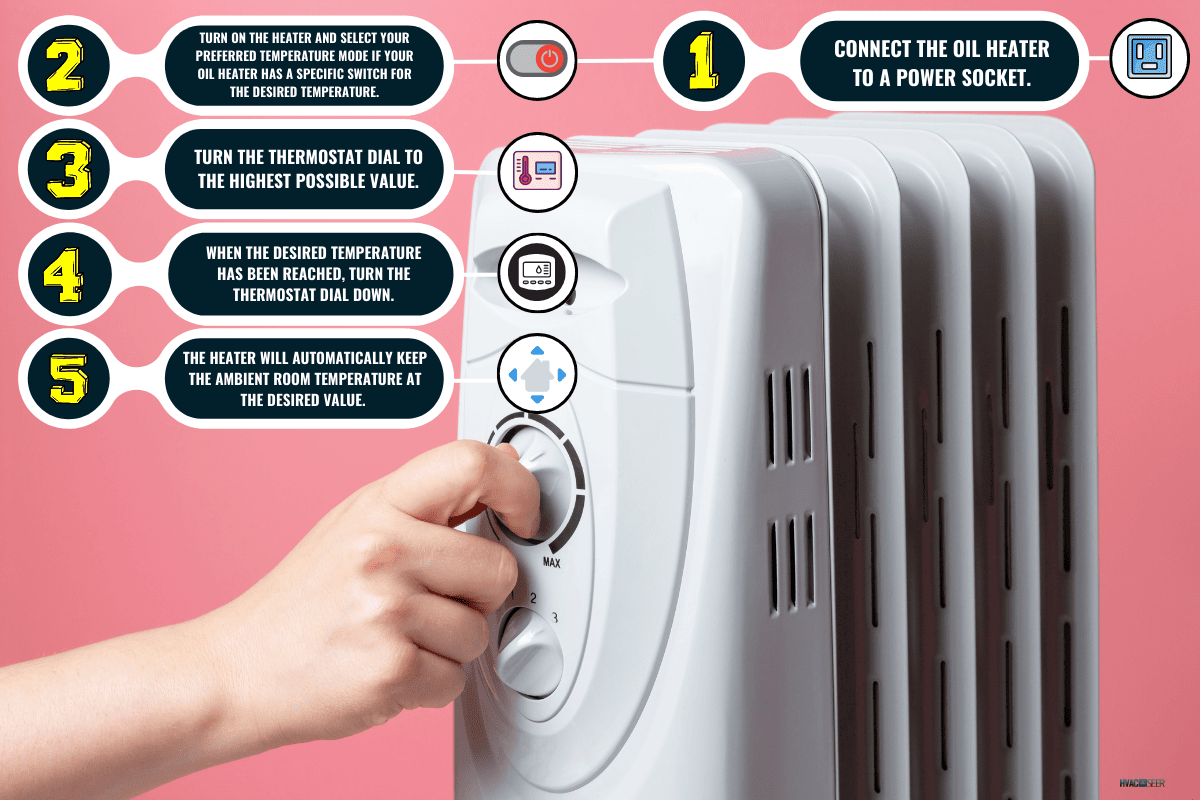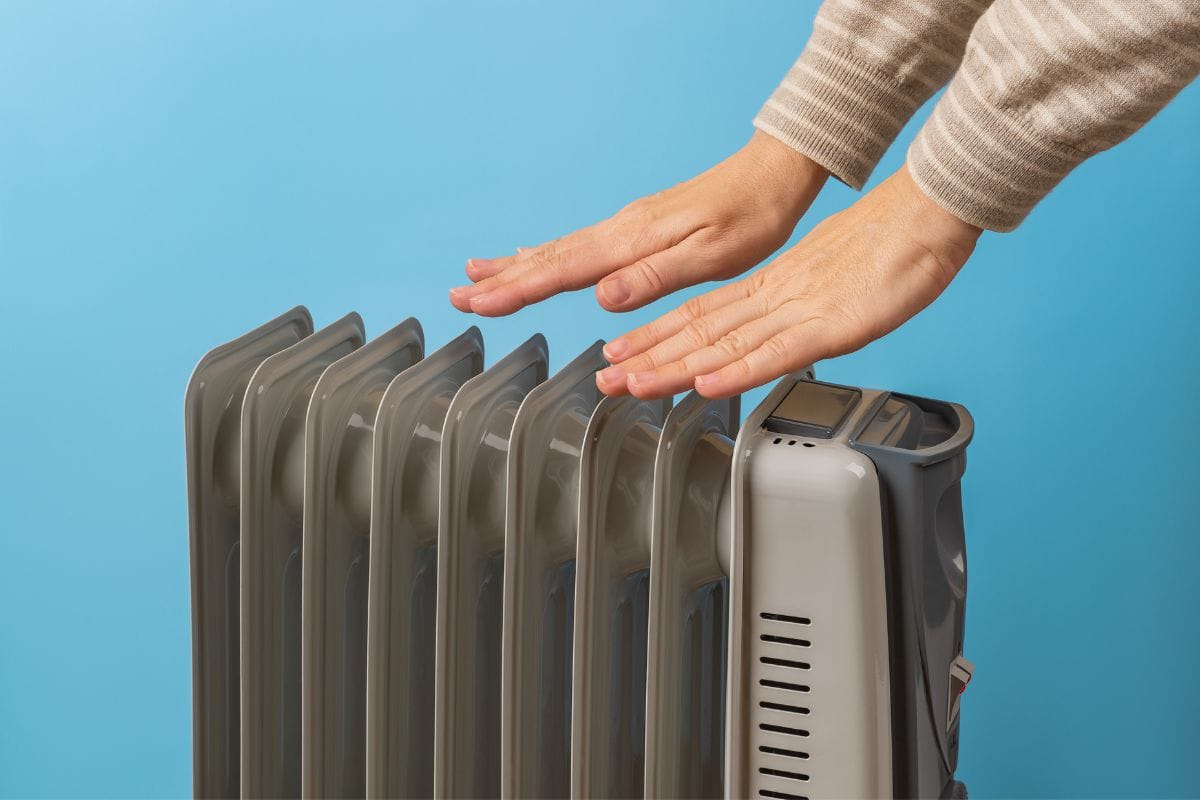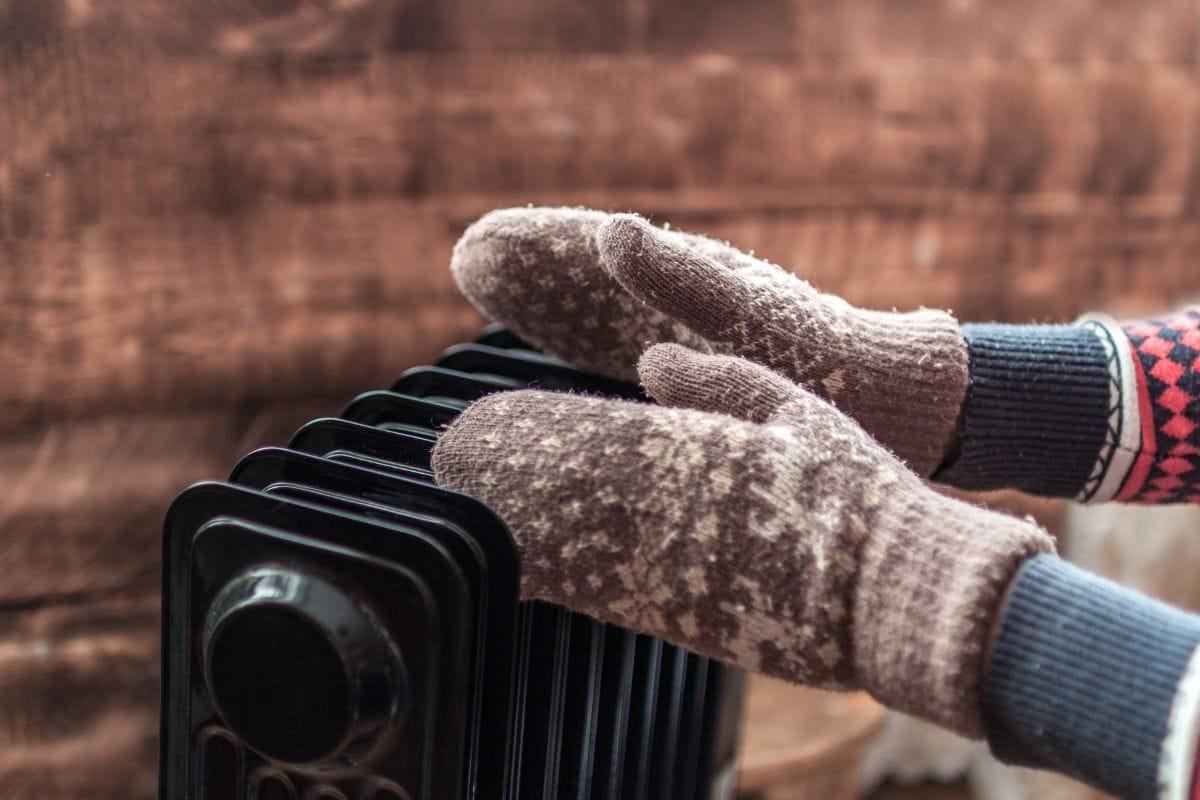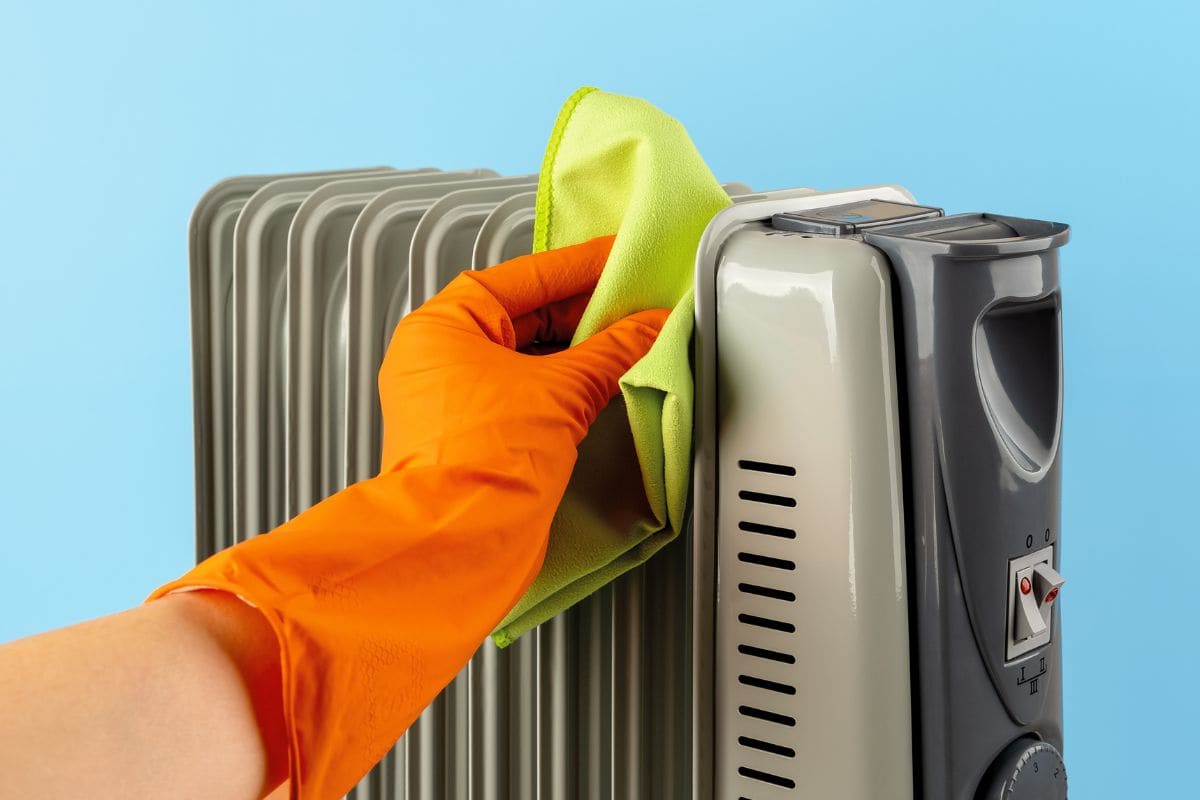If you're unsure how to operate your oil heater, you're on the right page. In this post, we'll be discussing the steps in detail to help you stay warm and comfy through the cold winter season.
To operate an electric oil heater properly, follow these simple steps.
- Connect the oil heater to a power socket.
- Turn on the heater and select your preferred temperature mode if your oil heater has a specific switch for the desired temperature.
- Turn the thermostat dial to the highest possible value.
- When the desired temperature has been reached, turn the thermostat dial down.
- The heater will automatically keep the ambient room temperature at the desired value. This will include switching on and off at intervals to keep the room temperature at a constant degree.
Oil heaters are helpful during those cold winter days. Keep reading as we will discuss the benefits of oil heaters and how to maintain and store your heater when the winter season ends.

How Does An Oil Heater Work?

An oil heater does not use oil as a fuel source. The oil is used as a heat reservoir to keep the machine hot and stable.
Chromel, a heating element, heats the oil in the heater. When the oil gets hot enough, it transfers this heat to the radiator body, warming your room through thermal convection.
The type of oil used in oil heaters is called diathermic oil. This is a mixture of highly refined mineral oils, and it results in high thermal conductivity properties.
Diathermic oil evenly fills out the whole radiator system when heated and retains this heat quite effectively even when the heater is off. Most modern oil heaters have thermostats that let you control how warm the room will become.
Timers have also been a standard feature of modern heaters, allowing you to set how long you want the heater to work, and it will automatically turn off once the timer runs out.
What Are The Top Oil Heater Brands?
Many manufacturers make oil heaters, but only a few brands are highly regarded by reviewers. When choosing an oil heater, you should choose the one that fits the needs of your home.
Here are some of the top brands when it comes to oil heaters.
DeLonghi
DeLonghi is a highly regarded manufacturer of oil heaters. They have a wide array of oil heaters that will fit most oil heater necessities. Depending on your budget category, they will have a product for your needs.
Their products provide 20% more efficiency than other brands because of their ComfortTemp technology. This technology, when selected, will automatically operate the oil heater and keep the room temperature at an optimal state.
Check out the DeLonghi 1500W Oil-filled Radiator on Amazon.
Pelonis
Pelonis is another well-known manufacturer of oil heaters. Their products are often made with wide wheel positioning, which prevents the product from tipping over easily.
Their newer heaters may also have remote control capabilities to provide even more comfort and ease of use. Pelonis heaters are also on the cheaper side, with most of their products priced at $100 or less.
Check out the Pelonis Oil-filled Space Heater on Amazon.
TaoTronics
Not a widely known brand, TaoTronics manufactures quality oil heaters. Their products often have modern, futuristic designs. Like Pelonis, their products also include remote control capabilities for ease of use.
Their heaters feature a smart ECO mode that provides the optimal room temperature while also keeping energy consumption at a minimum. Auto shut-off is also a key feature of their products.
When the heater gets too hot or accidentally tips over, a sensor will automatically shut the heater off to prevent damage.
What Are The Benefits Of Having An Oil Heater?
The most obvious benefit of an oil heater is that it warms up a room on cold winter days. However, there is more to an oil heater than just being able to warm up a room. These heaters are efficient and continue to improve as time goes by.
Energy Efficient

Unlike other types of heaters, oil heaters are typically more energy efficient. They consume less energy because when the oil in the system gets nice and hot, it retains the heat for much longer.
This, in turn, keeps a room warm for a longer period, even if the heater is already turned off.
Silent Operation
An oil heater is remarkably quiet, even when it's set to its maximum heating setting. This type of heater is perfect for a bedroom or study room where quiet is important.
Comfort

Because the heater does not burn fuel, it does not dry out the ambient air. The room's humidity does not decrease dramatically, which could cause discomfort or, worse, dehydration.
In addition, to being reasonably priced, these heaters also have long lifespans. If you maintain your system regularly, an oil heater could easily last for 16 to 20 years, whereas a gas heater typically lasts only about a decade.
What Are The Downsides Of Having An Oil Heater?
There are not a lot of downsides to owning an oil heater. But, like any appliance in your home, the heater is not perfect.
Takes A While To Heat The Room

An oil heater can take a while to heat up to the preferred temperature. This can be a major drawback if you want quick heating in your home.
It Can Be Expensive
For its size, an oil heater can be expensive in upfront costs. A Costway 1500W electric oil-filled radiator costs $69.00 compared to a Mainstays 1500W Ceramic Heater that costs $20.99. The heater also may impact your electric bill.
Heating Power Can Be Limited
Because of its small size, the heating capabilities of an oil heater can be limited to its maximum output. A 1500W oil heater is only expected to efficiently heat a space of up to 150 square feet.
So if you're planning on using an electric oil heater for large spaces, you might have to pay more for that kind of equipment.
How To Clean And Maintain An Oil Heater?

Cleaning and maintaining your electric oil heater is very straightforward. Keeping your system clean and ready for the next operation does not take much. This will also prolong its working life, saving you money down the road.
To clean your oil heater, follow these simple steps:
- Turn off your heater and unplug it. Make sure that it is completely cool. Problems could arise if you start cleaning your oil heater and it hasn't completely cooled down.
- The next step is to inspect the oil heater for any faulty parts or damage. You should call your product repair service if necessary.
- Vacuum the entirety of the oil heater. The fins are notorious for dust buildup so make sure never to miss a spot. To make things easier, use a vacuum head with a crevice tool and a brush. This makes for an easy vacuuming experience in hard-to-reach places.
- Wipe the exterior with a damp microfiber cloth. Too much water can attract dust to your heater. If you can't remove grease, fingerprints, or other stains with the cloth, you can use 1-2 drops of soap on a sponge.
- Wipe it with a dry cloth and let it air dry completely. Do not turn on your oil heater when it's still damp.
How Often Should You Clean Your Oil Heater?
It all depends on how much you use it. During the winter months, when you constantly use the oil heater, you should dust and wipe it off once a week.
When the cold days are done, and you're about to put your oil heater in storage, ensure that you thoroughly clean it beforehand. Also, thoroughly clean it once you've pulled it out from the storage room.
Check your owner's manual on how regularly a professional should check your system. Typically, an oil heater will require professional service once or twice a year to guarantee a smooth operation.
To Wrap Up
Electric oil heaters have been warming homes for decades and are still improving. Modern oil heaters have become more cost-efficient, easier to use, and more reliable as a form of home heating.
Take good care of your oil heater, and it will take good care of your home for a long time.
If you found this post helpful, check out these related articles:
How To Install King Electric Garage Heater [Step By Step Guide]


